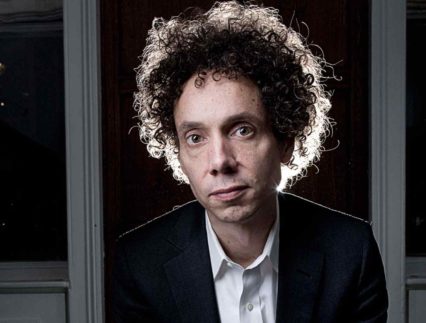Adam Somerset picks the most impactful excerpts of Robert McCrum’s radio series America Rewritten examining the current state of America with opinions from Malcolm Gladwell and other prominent American voices.
America Rewritten is a series of radio interviews in which literary editor Robert McCrum met six writers of the United States. The authors were diverse in age, geographical region and religion; their writing runs the span of novel, thriller, essay and reportage.
They were broadcast one per day in the week leading to the presidential inauguration. The significance of the programmes will most likely fade in the days to come and as real events unfold. But by the close of the last programme the writers had covered a range of topics. These were the most pertinent twelve.
On the Symbolism of the Presidency

Lionel Shriver: Something has changed in terms of what at least a segment of the American people seem to want from their leader. It used to be that we would look to somebody like Kennedy, who was still alive during my lifetime, and be thrilled and moved by his powers of oratory, his eloquence, his ability to bring poetry to the story of our country and to speak more beautifully than we can speak ourselves: and to represent, therefore, the best in ourselves. There is a clerical purpose that the President has traditionally served, and my father’s a minister so I know all about it. Now it’s more the case that it seems that you want somebody who has reduced himself to your level, who speaks the way you do, with whom maybe you would want to have a beer: it’s lowest common denominator.
On the Fallibility of the Artist
Richard Ford: The fact that I was so completely wrong about it has made me doubt what I understand about my country; that doubt has got me interested again in finding out just the ways in which I am wrong about it. The people who voted for Trump are people that I ought to know because I’m from the South: I’m from a red state. I ought to have a different sense of those people’s lives.
On Political Language
Walter Moseley: I think one of the wonderful… one of the brilliant things about Donald Trump, he can say something to you that can mean different things. Certainly to some people it means make it white again. To other people it means making it economically stable again. To other people it’s making it a world power again. Different people had different responses to him saying that and I think that was actually a smart thing to say.
Lionel Shriver: The plummeting of standards with Trump, especially in contrast (as you note) with Obama, is truly shocking, and the way that he uses the same words over and over again, often in the same sentence. I find him mystifying as an orator, as a successful orator. I don’t understand why anyone would find that moving or persuasive, and why anyone would want someone speaking that poorly on their behalf.
On the Pendulum of Politics
Malcolm Gladwell: Think about how long the reaction to Vietnam consumed American foreign policy: the reaction to Vietnam lasted longer than Vietnam. Vietnam is essentially a war that at its height last five, six years, and results in 20 years of reaction. Look at something like gay rights: gay rights tentatively pokes its head above the surface in the ’70s and the country is then consumed for 30 years with a backlash on the part of the religious right, largely fuelled by a fear that gay marriage will destroy traditional marriage, that their children will be taught that homosexuality is a good thing. The backlash completely dwarfs and consumes the initial attempt at reform, and you don’t see a kind of return to normalcy until five or six years ago.
On Race & Nativism
Richard Ford: Jefferson was peculiarly compromised by the race issue. The founding fathers could see into the next century, that race was going to become a problem because all of these people had been imported into the United States against their wills as chattels; they were soon going to accumulate and were going to need to be reckoned with, – and it scared them to death, as it should have. It’s the founding fathers’ perfidiousness about race, in a way that they could understand.
Marilynne Robinson: We have our classic old problems, but basically I think people enjoy a complex, urban mixed population. That’s easy to demonstrate – people gravitate towards it. There is the gated community side of the culture, but that’s really quite a radical minority. The word ‘tolerance’ is often used, but it’s not just tolerance: it’s pleasure, enjoyment, enrichment. It’s been true right across the cities of the United States. It’s not like an effort. In a way it’s recognising a gift.
On Religion
Marilynne Robinson: Some great failure occurred where people absolutely did not understand where their values, their interests lie. I do blame the churches – many, many of the churches of the branches of Christianity in this country – for participating in this polarisation and for radically mis-stating what are in fact Christian values. The great opposition that has developed politically in this country against helping the poor, against – God knows – doing justice to the foreigner (all these kinds of things that are ancient, classic, biblical, Christian values) have been swept away by people who claim Christianity as if it were a tribal membership rather than as if it were an ethical, moral, metaphysical system of understanding.
On Historical Analogy

Malcolm Gladwell: And the Joe McCarthy experience is incredibly instructive. What happens is that for a number of years everyone goes along with it, and by being so coarse and vulgar and by being willing to go places that no one else will go, he has enormous political success in the short-run. And then what happens? People finally get sick of him. This kind of rhetorical strategy has a very limited lifespan. After a certain point, people long for a return to some kind of dignity. I think of this with those people on the religious right…who’ve given him a kind of tentative support. And I think it’s important to say that it is tentative. They know he’s not one of them. Their patience for his vulgarity will be limited.
There is only so long that people who have been raised in the genteel culture of the Church will put up someone who is so profoundly other, and that’s what happened with McCarthy. Fundamentally decent people who were willing to put up with that for two, three years finally said you know what, I’m not doing it anymore. That same kind of thing will happen. I think someone’s going to stand up and just say you know what, enough. And my guess is that when that happens, there will be a surprising wave of public support in favour of it.
On Journalists
Malcolm Gladwell: People like me are among the few beneficiaries of all this. We’re going to have fun. This is the kind of thing that you live for as a journalist – moments of upheaval and confusion. That’s when people need you the most; and it’s when the field is richest. I spent my first nine or ten years as a reporter on The Washington Post. I would do anything to have that job back right now. Can you imagine what it’s going to be like to be a reporter at The Washington Post for the next four years? You’re going to have the easiest time ever getting anyone in Washington to talk to you: it’s open season; it’s going to be fantastic. The cultivation of insider sources will never be easier than right now.
On Political Writing
Marilynne Robinson: Our literary tradition doesn’t tend toward explicit political writing, except in certain cases: most people try to avoid it in their fiction. But I think that that could certainly change: if people can simply see how they can use politics aesthetically, respectably – or something near respectably – people will be trying all kinds of things. It will be interesting to see what happens.
On Democratic Culture
Marilynne Robinson: What we have to do is find out how deep American culture really is, how deeply democratic it really is. We will find that out. I hope there are no more bad surprises. But I think that there are things like integrity and radical criticism of materialism and so on..meaningful democracy is built on the very deep and wide-ranging integrity of individual people, and that is what we have to be sure we have secured. That’s what people have to be very serious about.
On Ideology & Government
Malcolm Gladwell: Virtually every position he takes now, he didn’t take a couple of years ago. He doesn’t have positions, in other words. So in the absence of any kind of coherent political or personal philosophy, what happens is that the permanent government takes over. My first ten years in America were spent in Washington, much of it covering the city’s bureaucracy (I covered healthcare bureaucracy for The Washington Post); if you spend five minutes dealing with the permanent bureaucracy in Washington, what you discover is that in contradiction to their public image as being kind of hapless and ineffective, these people are the opposite: they are ruthlessly effective. They are way smarter than you. They have been around for many generations. They will get their way.
On culture wars
Richard Ford: When I was in the little town of Roy, Montana, I was hunting pheasants. I went into a store and bought some peanuts. They were selling Christmas cookies in this place and I said to the woman as I was leaving, ‘Well, Merry Christmas.’ And she said, ‘Yes we can say that now because Trump is the President. And we don’t have to say “Happy Holidays” anymore.’
To find out more about America Rewritten and to access the episodes follow this link.











